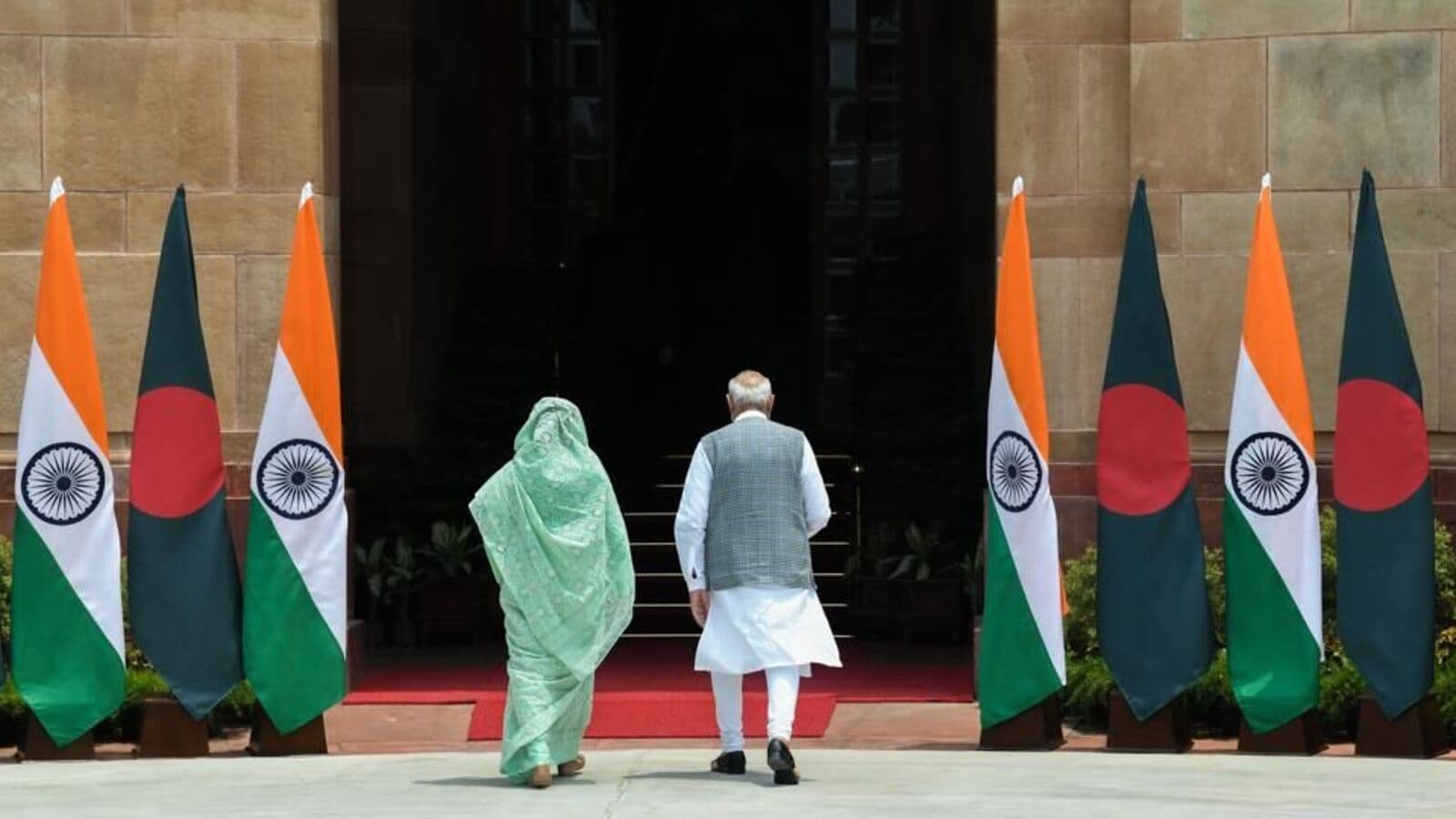Bangladesh is in the throes of the Army and an interim government, fifteen years after the Sheikh Hasina regime stormed to power. The Bangladesh Awami League leader resigned on Monday, August 5, and fled to India. Hasina’s resignation was announced by Bangladesh’s army chief General Waker-Uz-Zaman. The Army chief also informed that he had invited political parties to form the interim government.
Hours later, the Bangladesh President Mohammed Shahabuddin ordered that jailed Bangladesh Nationalist Party (BNP) chief Khaleda Zia be freed. The move triggered speculations on whether the BNP would form the interim government in Bangladesh.
If BNP comes to power, it might spell doom for PM Narendra Modi-led Indian subcontinent, already surrounded by anti-India neighbours.
Sheikh Hasina fled to India on Monday.
Sheikh Hasina’s flight to India is not surprising given the longstanding alliance between her and Bangladesh’s powerful neighbour. India has been a crucial supporter throughout her tenure.
This relationship has contributed to rising anti-India sentiment within Bangladesh, especially as Hasina’s popularity waned.
India-Bangladesh Security Dynamics, Regional Stability
India has traditionally considered the security of its northeastern states, many of which are bordered by Bangladesh, to depend on its strategic presence in that country. This was made possible by Hasina’s concession of goods transit privileges and her crackdown on militant groups operating in Bangladesh that are hostile to India.
A major concern for India was militant groups hostile to India operating in Bangladesh. In addition, Sheikh Hasina and Prime Minister Narendra Modi had a record-breaking ten meetings in 2023.
Delhi has to decide whether to continue backing its increasingly unpopular ally and risk alienating the public and hurting relations with Bangladesh over the long run.
Hasina’s resignation has now resolved this issue.
India’s security strategy faces a significant setback with Bangladesh’s shifting political landscape. Surrounded by neighbouring countries with strained relations—Pakistan and China—losing Bangladesh as an ally is a considerable blow.
Fundamentalists are set to take over Bangladesh with help from benefactors in Pakistan and China. Now friends of India’s two adversarial countries – Pakistan and China – have scored a victory in Bangladesh as well: the Bangladesh Nationalist Party (BNP) of Opposition leader Khaleda Zia, and Jamaat-e-Islami.
India may find itself sandwiched between Pakistan and a possibly hostile Bangladesh if Khaleda Zia were to take over as head of that country. This change may make India’s regional influence and strategic positioning more difficult.
India would lose control of the Bay of Bengal if relations with Bangladesh were to deteriorate under a probable Khaleda Zia regime.
The Bay of Bengal is a strategically positioned region that spans the Indian Ocean Region from Africa to Indonesia. It is a vital part of the area that lies between Bangladesh, Myanmar, and India. This region is vital due to its proximity to the Strait of Malacca, one of the world’s key maritime chokepoints that links the Indian Ocean with the South China Sea.
Bangladesh is crucial for India to connect its geographically isolated north-eastern states with the Bay of Bengal. There are five Indian states that share their boundary with Bangladesh – West Bengal, Mizoram, Meghalaya, Tripura, and Assam.
Pro-Pakistan, China Forces Poised to Take Over Bangladesh?
Sheikh Hasina’s removal may have been a part of Pakistan’s long-term plan to install a pro-Pak government in lieu of the Bangladesh Awami League (BAL), which is friendly with India.
There are reports that Pakistan may have helped the Jamaat and its student branch by supporting their activities, giving them briefings on their tactics, and providing safety during Hasina’s forces’ crackdowns, according to Firstpost.
According to the article, Pakistan may want to stage elections in order to support a BNP-led government that is pro-Pakistan and gain international credibility.
Is India Losing Stable Neighbors?
In 2024, the Maldives’ new president expelled Indian troops to strengthen ties with China.
Afghanistan fell to the Taliban, while Sri Lanka’s stance with India remains uncertain, with a Chinese vessel docking ban set to end soon.
Nepal has also been shifting towards China. Whispers of change have been emanating from Bhutan too.
With Sheikh Hasina’s resignation as Bangladesh Prime Minister, India has lost one of its most dependable allies in a region increasingly influenced by anti-Indian sentiment and Chinese interests.
Catch all theBudget News,Business News, Politics news,Breaking NewsEvents andLatest News Updates on Live Mint. Download TheMint News App to get Daily Market Updates.
MoreLess

